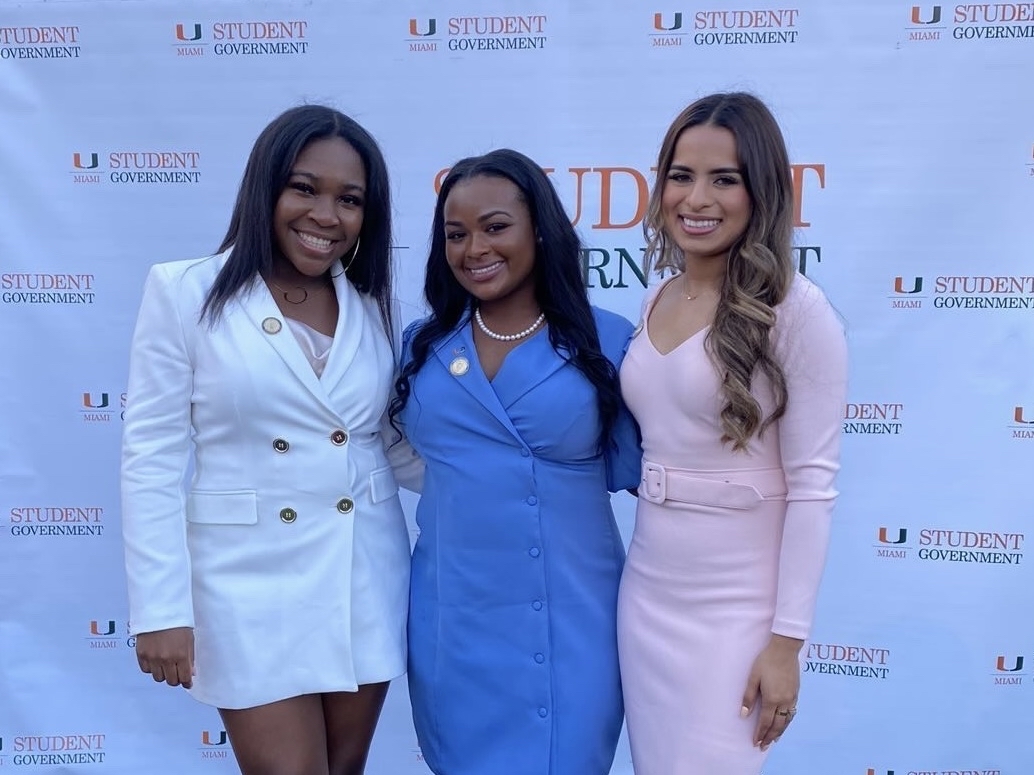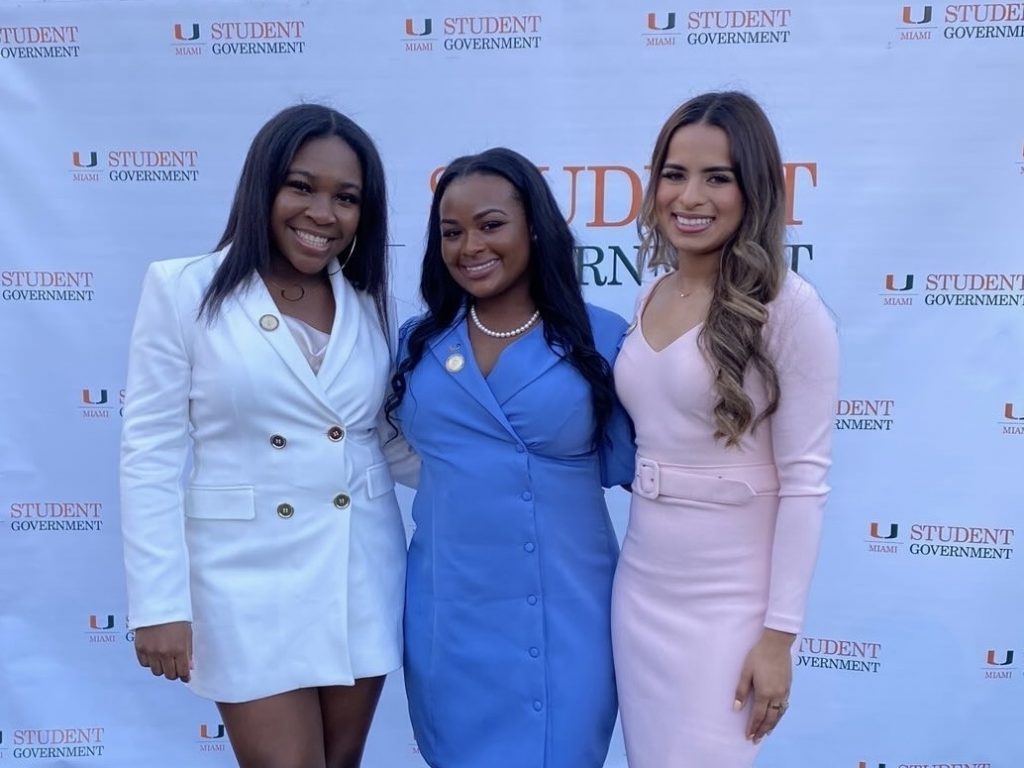

Joining Student Government (SG) affords students a number of opportunities: creating change at the University of Miami, building professional and personal relationships and acquiring useful soft skills.
SG is UM’s democratic, student and faculty led decision making body. It creates on-campus initiatives relating to academics, campus life, housing, resources, dining and more.
SG encompasses the judicial, legislative and executive branches. Additionally, there are four agencies: Category 5, coordinating spirit events; ECO, advocating environmentally friendly improvements on campus; Elections Commission, overseeing elections and What Matters to U, finding and hosting unique speakers for the student body.
“At UM, I’ve found there are so many different outlets and leadership positions you can have across the board,” said Jamie Williams-Smith, president of SG and a senior studying business technology and strategic communication.

There are numerous ways students can get involved with Student Government, be it with one of SG’s agencies, with one of the three branches of government or with a subgroup associated with the branches.
For incoming first-year students, First Year Leadership Council (FLC) and senator positions are the primary ways to get involved.
In FLC, students participate in leadership building activities, projects to enhance student life and retreats. The year-long program selects 20 first-year students to the council. Students who have been a member of FLC said the program was not only a great learning experience but also a great way to meet peers and build relationships at UM.
“As a freshman, you’re new and you get a taste of everything,” said Chika Nwosu, vice-president of SG and a senior studying psychology and biology. Nwosu is a former member of FLC and now acts as chair for FLC. “Just having that core memory of us doing FLC together has created some lifelong friendships.
As a senator, students can represent a number of constituencies. For first years, these include representing a residential college, school or college, the freshman class or one of the many unique constituency seats.
The senate works with administration and the other SG branches to advance students’ agendas.
Williams-Smith, as a junior class senator, passed a bill that called for the school to put an icon on CaneLink that would link to sexual assault resources, making these resources more accessible. Now, a sexual assault resource icon can be found in CaneLink.
There are numerous ways to explore SG and how to get involved.
Paul Douilon is a transfer senator, former Speaker Pro Tempore of student senate and a senior studying criminology and sociology. He encourages news students to get involved with the senate by attending the public meetings or watching senate minutes online. He also recommends reaching out to those in SG to learn more about what they do and ask them questions.
“If there’s anyone out there who really wants to do this, I commend you for trying and I really encourage you to go for it and give it your all,” Douilon said.
Williams-Smith said she encourages students to go at their own pace. Those who want to get involved with SG, or any other organization on campus, have countless choices and opportunities as soon as they walk on campus. For those who are unsure of what they want to get involved in, there is no rush.
“Get involved in things you’re really passionate about,” Williams-Smith said. “You have four years to really immerse yourself in the university.”
In Williams-Smith’s first year, she was not involved in SG. Instead, she chose to focus on professional endeavors and a business fraternity. In her sophomore year, she began in SG as a member of the Diversity, Equity and Inclusion Committee. Now, Williams-Smith is the student body president.
For those who don’t want to hold a position in SG, there are still ways to make your voice heard and work with SG. Executives in SG, such as Williams-Smith and Nwosu, have office hours for students to voice concerns or initiatives. Further contact information is available via the Executive Board section of the SG website. The executive branch’s Outreach Committee hosts programs around campus to connect students with SG.
Also, students involved in cultural-identifier clubs, the Residential Advisor or First Year Fellow programs and many more groups have the opportunity to affect change, hold leadership positions and create friendships at UM. SG is just one way to achieve this.
“If you’re passionate about something and want to be involved, go for it,” Douilon said.






